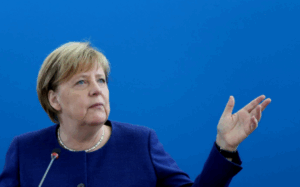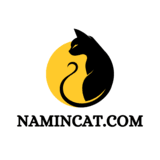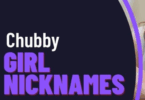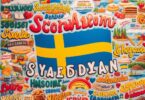Angela Merkel, one of the most influential political leaders of the 21st century, is known not only for her policy decisions and leadership style but also for the nicknames she has accumulated over the years. These monikers, coined by media, political analysts, and the public, provide a fascinating window into how she is perceived both at home and abroad. This article dives into the world of Merkel’s nicknames, exploring their origins, meanings, and the cultural contexts that gave rise to them.

Nicknames for Angela Merkel
2. Who Is Angela Merkel?
Angela Dorothea Merkel served as the Chancellor of Germany from 2005 to 2021. As the first female chancellor and the de facto leader of the European Union for many years, Merkel carved a unique niche in global politics. Born in Hamburg in 1954 and raised in East Germany, Merkel’s background as a physicist brought a methodical and scientific approach to her governance.
3. Why Nicknames Matter in Politics
Nicknames often reveal how a public figure is viewed by society. In politics, they can be affectionate, critical, humorous, or even mocking. They serve as a mirror, reflecting public sentiment, media narratives, and international opinion. For Angela Merkel, her nicknames have ranged from respectful to whimsical, each painting a different facet of her leadership persona.
4. The Origins of Merkel’s Nicknames
Many of Merkel’s nicknames stem from her demeanor, leadership style, political decisions, and personal background. Others are media inventions or products of internet culture. Her calm, analytical, and pragmatic style has contributed to both admiring and critical nicknames.
5. Most Popular Nicknames for Angela Merkel
- Mutti (Mommy)
- Iron Frau
- The Merkelator
- Teflon Merkel
- The Queen of Europe
- Stasi Girl
- Climate Chancellor
- Angie
Each of these has a distinct story and cultural resonance.
6. The Symbolism Behind Each Nickname
Mutti (Mommy): This affectionate German term underscores Merkel’s perceived role as a motherly figure in German politics, especially during times of crisis. However, it has also been used sarcastically to imply overprotection or lack of innovation.
Iron Frau: Inspired by “Iron Lady” Margaret Thatcher, this nickname highlights Merkel’s steely resolve, especially during the Eurozone crisis. It projects strength but also rigidity.
The Merkelator: This playful mix of “Merkel” and “Terminator” emphasizes her resilience and emotionless political style. It gained popularity during intense EU negotiations.
Teflon Merkel: Reflecting her uncanny ability to avoid political scandal and deflect criticism, much like Teflon-coated surfaces repel substances.
The Queen of Europe: A nod to her leadership in the EU, especially during Brexit negotiations and the Greek debt crisis. It denotes respect but also the burden of expectations.
Stasi Girl: A controversial and derogatory term referring to Merkel’s East German upbringing and alleged links to the former East German regime. It has been widely criticized.
Climate Chancellor: Used during her early years in office for her commitment to climate policy. However, it faded as her environmental actions were perceived to wane.
Angie: A casual, pop-culture-friendly nickname that portrays her more relatable and personal side, often used in tabloids.
7. International Nicknames: Global Perceptions
Angela Merkel’s image differs globally. In France, she’s often seen as a stabilizer, while in Southern Europe she was sometimes viewed as an austerity enforcer. Nicknames like “Frau Nein” (Mrs. No) emerged in Greece, reflecting frustration over her tough economic policies.
In the United States, she was dubbed “Leader of the Free World” during the Trump era, reflecting admiration for her steadiness. In Russia, she was sometimes called “The Ice Lady,” underlining a cold but respectful relationship with Vladimir Putin.
8. Media Influence on Merkel’s Nicknames
The media played a significant role in shaping Merkel’s nicknames. German newspapers like Der Spiegel, international outlets like The Economist, and TV satire shows used these names to construct narratives around Merkel’s policies and demeanor.
Internet memes, late-night talk shows, and editorial cartoons further spread and sometimes distorted the meaning behind her monikers.
9. Public Reception and Humor
In Germany, many citizens embraced the nickname “Mutti” with a mix of admiration and gentle mockery. Others criticized it for infantilizing serious politics. The nickname “Merkelator” was often met with laughter, especially when accompanied by humorous photoshopped images online.
10. Nicknames vs. Legacy: A Double-Edged Sword?
While nicknames can make a leader more relatable, they can also oversimplify or distort their legacy. Merkel’s calm and cautious leadership is both praised and critiqued through the lens of her nicknames. As history evaluates her time in office, these monikers will remain part of her political identity.
11. Table of Nicknames and Their Meanings
| Nickname | Meaning/Origin | Tone |
|---|---|---|
| Mutti | Motherly figure in politics | Affectionate |
| Iron Frau | Strong and decisive like Margaret Thatcher | Admiring |
| The Merkelator | Resilient, emotionless negotiator | Humorous |
| Teflon Merkel | Scandal-free and politically resilient | Neutral |
| Queen of Europe | Dominant EU leader | Respectful |
| Stasi Girl | Reference to East German past; controversial | Derogatory |
| Climate Chancellor | Early advocate of environmental policy | Positive |
| Angie | Casual nickname used in pop culture and tabloids | Friendly |
12. Conclusion
Angela Merkel’s nicknames provide a multi-dimensional portrait of her leadership. They reveal public sentiment, media bias, and international views. Whether affectionate or critical, these monikers have become an inseparable part of her political persona.
13. FAQs
Q1: Why is Angela Merkel called Mutti?
A1: It reflects her image as a caring, motherly figure in German politics, particularly in crises.
Q2: What does “Iron Frau” mean?
A2: It compares Merkel’s firmness to Margaret Thatcher, the “Iron Lady.”
Q3: Is “Stasi Girl” a fair nickname?
A3: No, it’s controversial and based on her East German background, but lacks substantial evidence.
Q4: Did Angela Merkel like these nicknames?
A4: Merkel rarely commented publicly on them, staying focused on policy rather than personal image.
Q5: Which nickname is most commonly used in Germany?
A5: “Mutti” is arguably the most widely recognized nickname in German public discourse.






